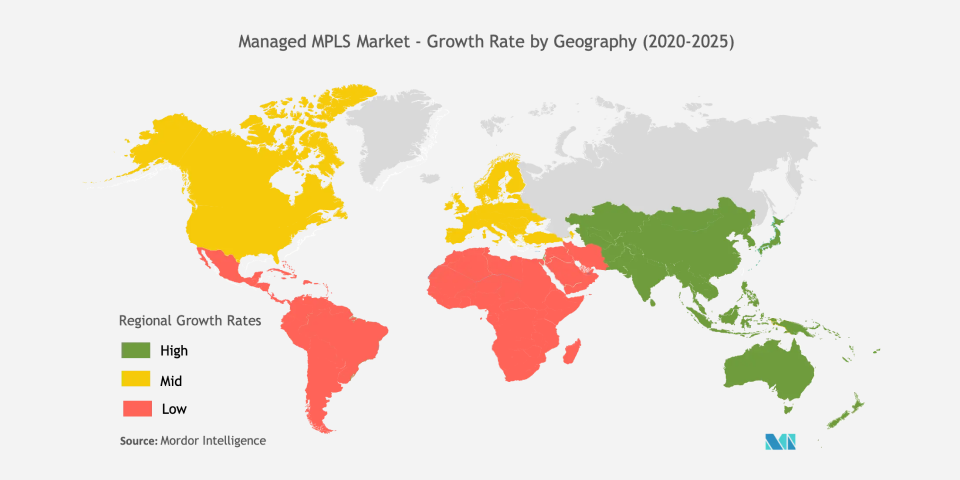The retail sector is undergoing a massive transformation as customer demands and shopping trends shift due to rapidly evolving technology. As a result, retailers need access to current analytics to make informed decisions and gain an edge over their competition.
With the right data analytics system in place, you can stay ahead of your competitors by having accurate information on consumer behavior, pricing changes, inventory levels, and other relevant market factors crucial for success in this ever-changing landscape.
In this blog post, I’ll discuss how retail data analytics can help you capitalize on opportunities by providing detailed insights into customers’ buying habits.
Empowered consumers and shoppers are the results of constant technological disruptions, and they have their expectations from their favorite brand or a retail outlet selling their favorite brand.
Retailers must ensure that their empowered customers have convenient, satisfying, and exceptional experiences throughout their interactions. Ask yourself this crucial question: "What sets you apart from the crowd?”
If you are doubtful or do not seem to have an answer, let me help you. Thanks to new digital technologies, there has been an unprecedented rise in digital disruption across industries. If you are not the early adopter of an appropriate technology according to your industry vertical, you will lose the market share of the ones that do.
There has been an unprecedented rise in digital disruption that has been taking place across industries thanks to new digital technologies. If you are not the early adopter of an appropriate technology according to your industry vertical, you will lose the market share of the ones that do.
Yes, business leaders must transform their businesses, but they need to leap with the help of AI-driven analytics.
This article will delve into the insights retail data analytics can provide to retail owners and decision-makers to stay ahead of the curve.
What is retail data analytics, and why is it essential?
As a CTO, product manager, or decision influencer looking to utilize retail data analytics more effectively in your business strategy, you may wonder what data metrics and tools are necessary to achieve desired goals.
Utilizing effective information to inform decisions and gain accurate insights is essential in today's competitive market.
By leveraging the right combination of sophisticated technology solutions, intelligent internal processes, and experienced personnel, it is possible to gain real-time visibility into key areas, including
- inventory levels
- customer shopping patterns
- customer preferences
Retailers can tap into these data sets and seamlessly focus on improving operational efficiency while maximizing profits.
What insights do you want for a better and faster decision-making process as a retailer? AI-powered retail analytics provides insights into -
- Sales
- Inventory
- Customers
- Other important retail aspects
Retail data analytics encompasses several separate fields for creating a comprehensive insight into your retail business's health and sales. It also gives you details on the areas that require improvement and reinforcement.
Retail analytics help retailers understand consumers' shopping behavior, run businesses more efficiently, and deliver improved customer service.
Retail analysis goes beyond trivial data analysis by using data mining and discovery to align disparate datasets to produce actionable business intelligence insights.
For instance, retailers can use their sales data analysis to identify their ideal customers as per the diverse categories such as age, preferences, buying patterns, purchase location, etc.
How can retailers use data analytics?
Providing an enhanced in-store experience coupled with personalized recommendations, offers, and product support based on age, gender, location, and customer behavior is essential to standing out in the crowd. Retail data analytics is a valuable technology that provides decision-makers with all this data in an insightful, meaningful, and understandable format.
1. Behavioural insights

Significant challenges that retailers face are:
- Improving the customer conversion rates
- Personalizing their marketing campaigns
- Predicting and countering customer churn
- Lowering the acquisition costs
Retail data analytics enables retailers to counter these issues by understanding customer shopping behavior. With the ever-increasing consumer interaction points, the data has become diverse and complex simultaneously.
However, with powerful business intelligence tools that utilize the culmination of modern technologies, it becomes easier for business owners to derive actionable data after collating and analyzing it.
2. Enhanced in-store experience

Wherein merchandising has always been associated with aesthetics, there has been a dearth of measuring the impact of merchandising decisions. There is also a new shopping trend where customers shop online after looking over their desired products in-store.
Now that iBeacons and IoT technologies have made their way into the market, retail stores can analyze their products' in-store behavior and assess their impact on their developed merchandising efforts.
Retail business owners can use a data engineering platform to personalize their customers' in-store experiences and drive loyalty by offering regular offers to frequent customers.
Gaining insights into consumer behavior can also allow retailers to increase the effectiveness of their promotional materials and boost cross-selling of products and services.
Retailers can gain their customers' behavioral insight from
- Web Analytics
- Point-of-sale systems
- Loyalty card data
- Mobile apps
- Supply chain systems
- In-store sensors
- CCTV Cameras
Using the collected data and applying predictive analytics, omnichannel retailers can:
- Have a test run of all their marketing and merchandising tactics on customer behavior and resulting sales.
- Personalize their in-store services by using customers' purchases and browsing history to identify their needs and interests.
- Observe their customers' in-store behavior, analyze and categorize their customers for creating offers and discounts and even for loyalty points programs.
3. Manage operations and value chains

With faster product life cycles and complex operational chains, retailers need analytics to transform their supply chains and product distribution channels and reduce costs. To drive their business and gain a competitive edge, retailers need to focus on returns. They can use business intelligence tools to optimize their asset utilization, cost, performance, and service quality.
To increase operational efficiency, retailers need a system that can unlock the insights hidden in their logs, sensors, or even machines. These insights include information that helps retailers:
- Improve decision making
- Enhance operations performance
- Reduce costs
Artificial intelligence can assist retailers in gaining the most influential patterns in their data
- predict sales over a holiday season
- determine how much staff they need for the week
- ensure their inventory matches the demand
Some fun details related to AI, predictive analysis in retail

Artificial Intelligence in Retail Market was valued at USD 1.80 billion in 2020 and is expected to reach USD 10.90 billion by 2026, at a CAGR of 35% over the forecast period 2021 - 2026.
- Product recommendation and planning will be the growing area for AI in the retail sector.
- The advancement in retail data analytics will drive the growing adoption of artificial-enabled devices and services.
- Various AI and Big Data technologies, such as machine learning, natural language processing, deep learning, and more, will benefit the retail industry with automated machine-driven decisions.
- 33% of users are more likely to increase their satisfaction due to the personalized experiences offered by AI – Aberdeen and IBM
- Companies that have invested in AI are three times more likely to acquire new customers.
- Companies that have adopted AI are 2.5 times more likely to improve customer retention.
Conclusion: Merge AI with retail data analytics
AI has various benefits in the retail industry, including cost-saving, increased productivity, faster resolution of business problems, faster delivery of new products and services, and increase in innovation, which is rapidly making its way into many advanced solutions, including autonomous vehicles, smart bots, advanced predictive analytics, in the retail space. - Consumer Technology Association
Delivering the ultimate customer experience is the core foundation of every business. Decision-makers who are tasked with maneuvering their business with a high ROI factor can easily do so with AI, ML, and data analytics by creating a unique customer profile for their user base and executing their strategy accordingly.
Artificial intelligence, in conjunction with other upcoming technology, is playing an essential role in retail operations. AI, coupled with machine learning, data analytics, and automation, derives better value in terms of time and cost savings. As a retail brand trying to make your mark in the market, you must partner with a digital product consultant who has been helping big retail brands in the US for a long time.
If you want to inculcate new technology into your retail process or learn about merging disruptive technology in your business to stay on top of your retail game, let's chat about it.

Saptarshi Das
Content Editor
9+ years of expertise in content marketing, SEO, and SERP research. Creates informative, engaging content to achieve marketing goals. Empathetic approach and deep understanding of target audience needs. Expert in SEO optimization for maximum visibility. Your ideal content marketing strategist.

Let’s build the next big thing!
Share your ideas and vision with us to explore your digital opportunities
Similar Stories
- Analytics
- undefined Mins
- July 2019


Receive articles like this in your mailbox
Sign up to get weekly insights & inspiration in your inbox.


